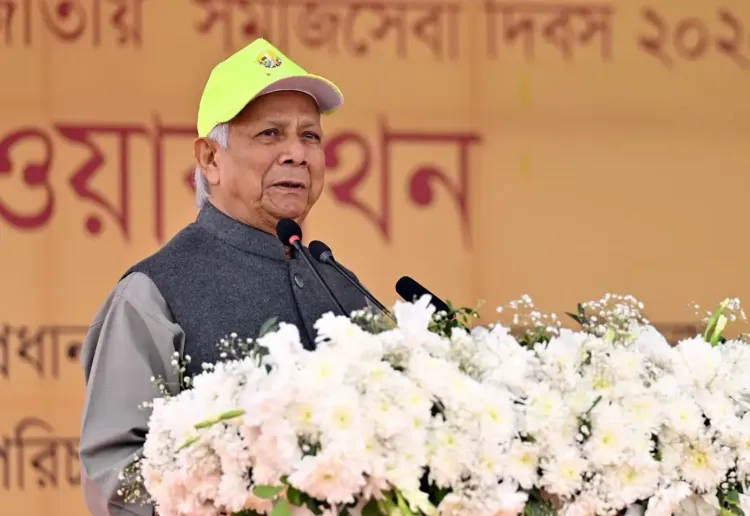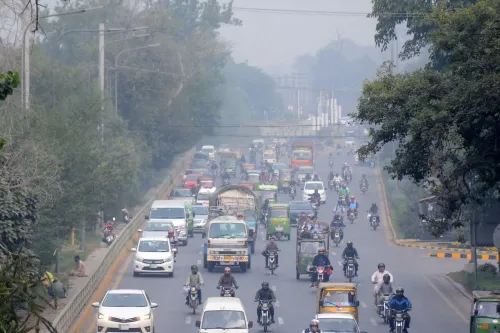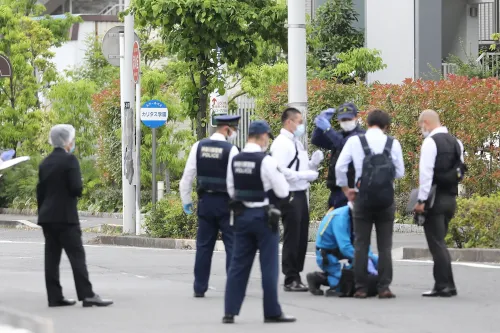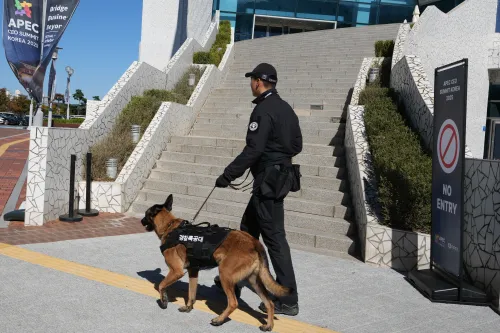Political Instability in Bangladesh Stalls Regional Connectivity Initiatives

Synopsis
Key Takeaways
- Political instability is hindering regional projects.
- Focus on scrutiny over India projects is slowing implementation.
- At least 11 projects funded by Indian loans are halted.
- Relations between India and Bangladesh have soured.
- Trans-shipment facility for Bangladesh has been revoked.
Dhaka, April 17 (NationPress) Numerous initiatives in Bangladesh aimed at boosting trade and connectivity with neighboring nations, particularly India, have encountered significant delays under the interim administration led by Muhammad Yunus, as reported by local media on Thursday.
“The present government is not prioritizing projects associated with India. Instead, there is heightened scrutiny on the rationale behind the initiation of these projects, which has resulted in a slower pace of implementation,” an official from the Implementation Monitoring and Evaluation Division (IMED) of the Planning Ministry informed The Business Standard, requesting anonymity.
The progress of projects, especially those aimed at enhancing connectivity with India, has been reported to be slower than ever, according to sources within the planning ministry.
These projects include the Bangladesh Regional Connectivity Project-1, which seeks to enhance trade with India, Bhutan, and Nepal; the South Asia Subregional Economic Cooperation (SASEC) Project, designed to stimulate trade with neighboring countries; and the Accelerating Transport and Trade Connectivity in Eastern South Asia initiative.
Recent reports indicate that the interim government under Yunus has opted not to proceed with at least 11 projects in Bangladesh that were intended to be financed by Indian loans.
Relations between India and Bangladesh have deteriorated since the fall of the Awami League administration headed by former Prime Minister Sheikh Hasina during a violent uprising last August.
The interim government led by Yunus has faced repeated accusations of engaging in anti-India rhetoric and the persecution of minorities.
Last week, citing “significant congestion” at its airports and ports, India announced the termination of a trans-shipment facility for Bangladesh, which had allowed Dhaka to export cargo to third nations using Indian customs stations. This facility, established by New Delhi, aimed to enhance regional connectivity and foster trade between Bangladesh and third countries by utilizing India as a transit corridor.
“The transshipment facility provided to Bangladesh has over time led to substantial congestion at our airports and ports. Logistical delays and increased costs have been impeding our own exports and creating backlogs. Therefore, the facility has been withdrawn effective April 8, 2025. To clarify, these measures do not affect Bangladesh exports to Nepal or Bhutan transiting through Indian territory,” stated Randhir Jaiswal during a media briefing last week.
This decision followed controversial remarks made by Yunus during his visit to China last month.
“The seven states of India, referred to as the Seven Sisters, are a landlocked region. They have no access to the ocean. We are the only guardians of the ocean for this entire region. This presents a tremendous opportunity. It could serve as an extension of the Chinese economy,” Yunus remarked during a high-level roundtable discussion on sustainable infrastructure and energy in Beijing.









